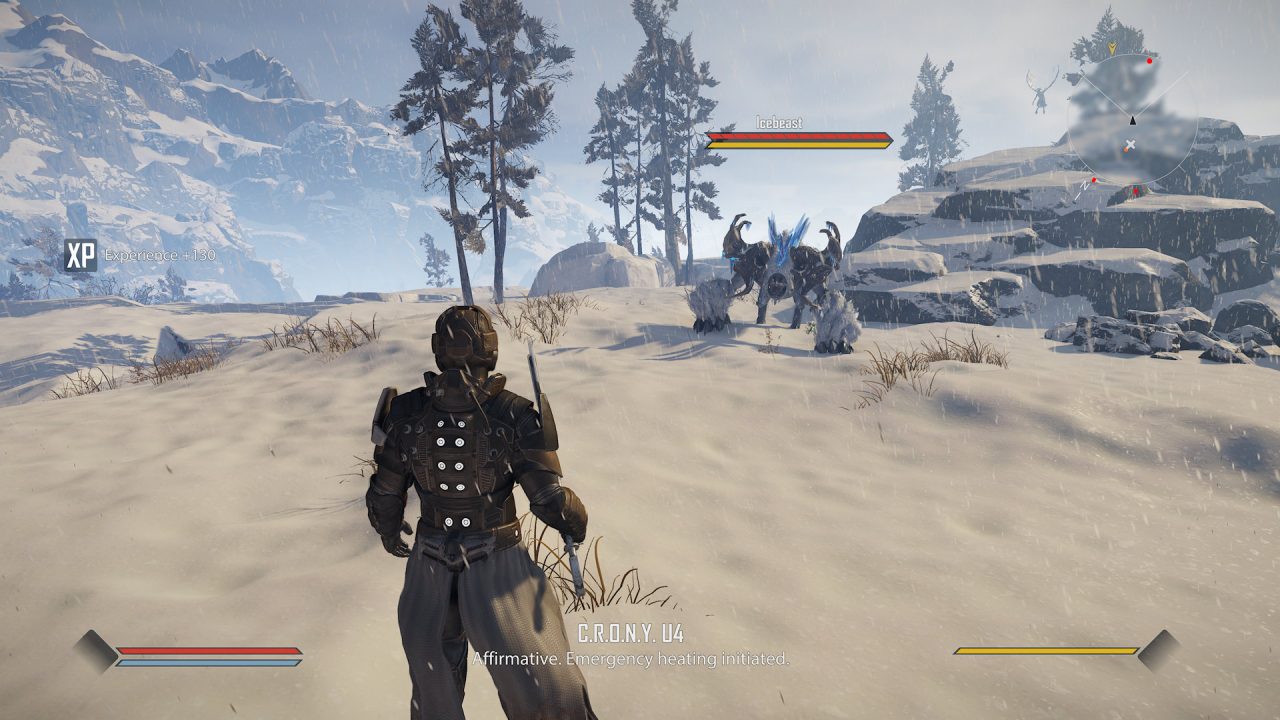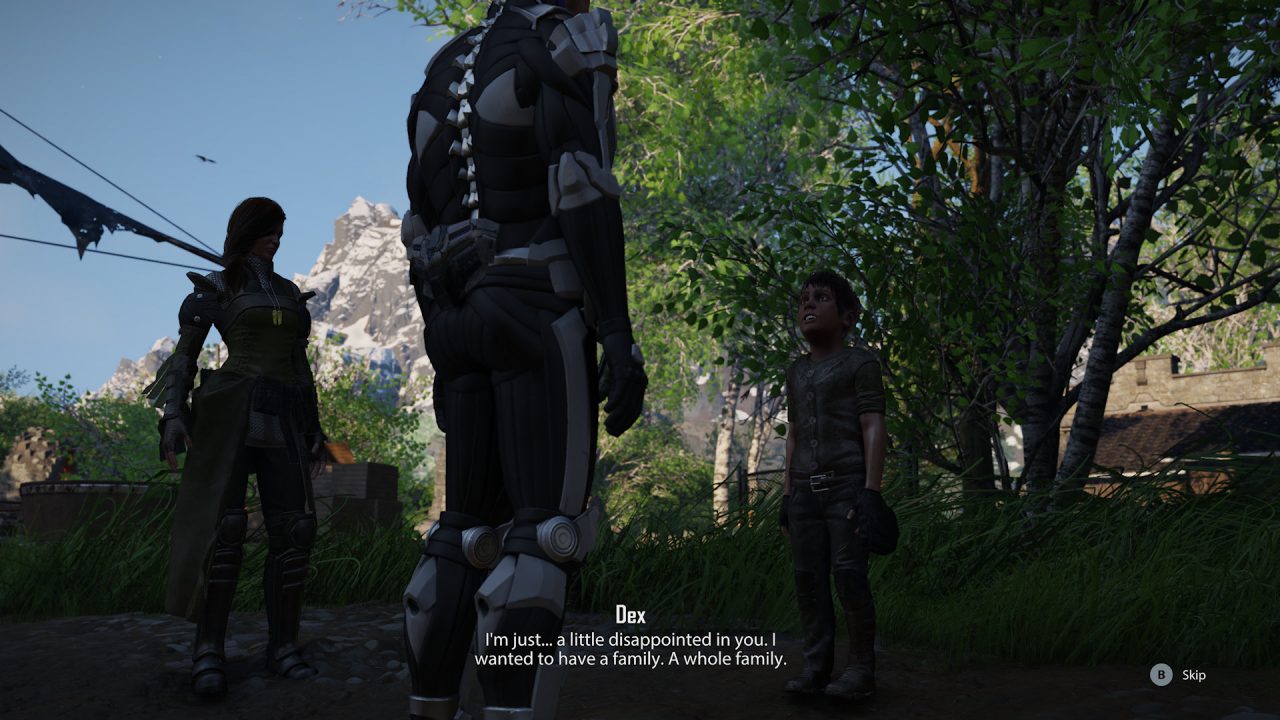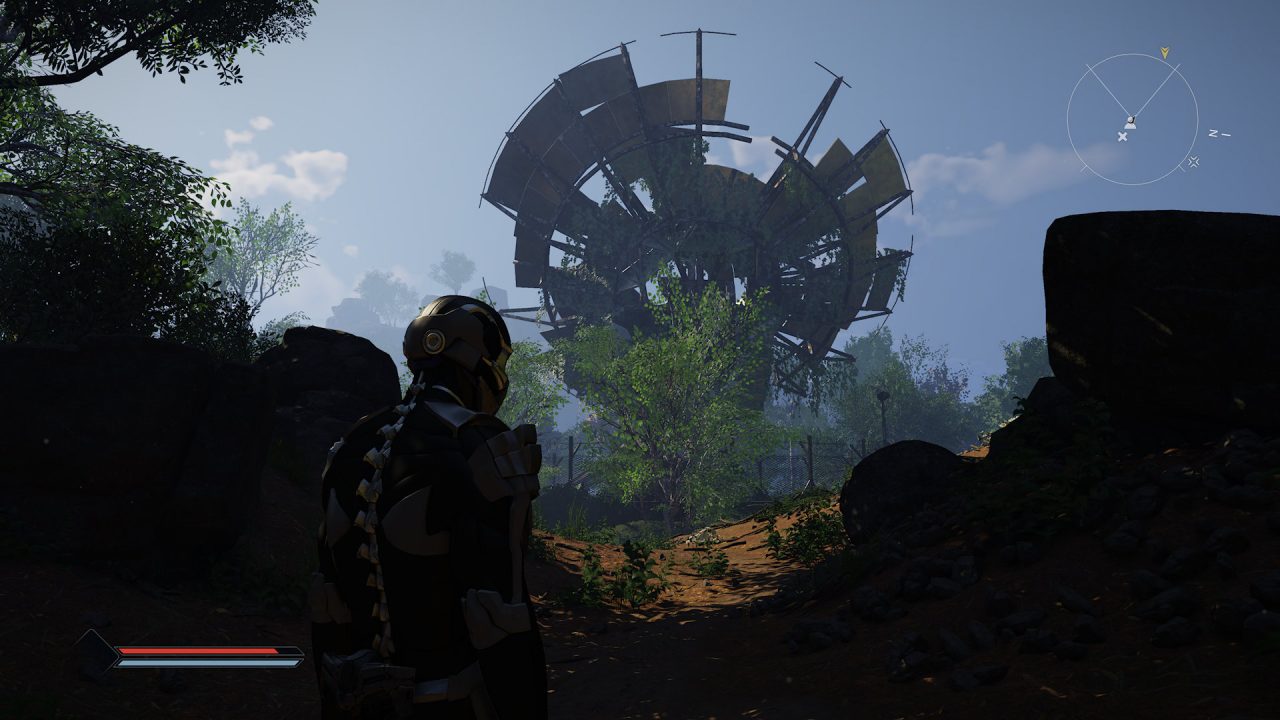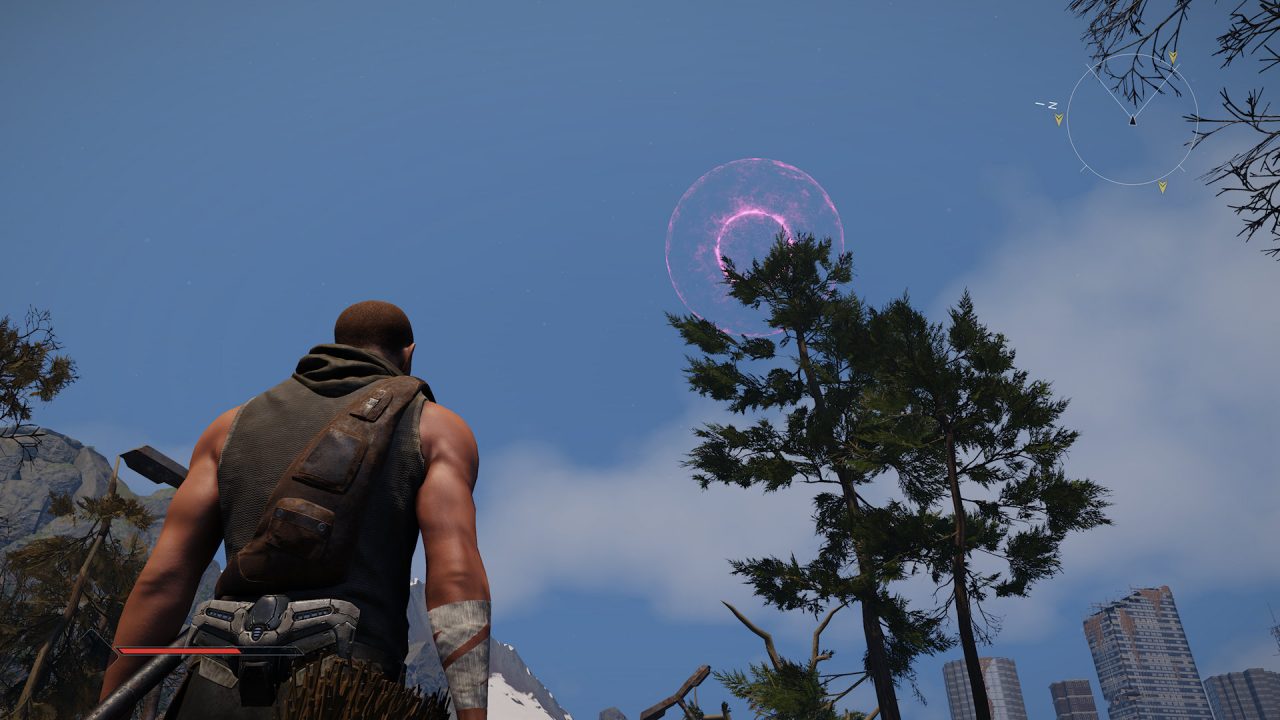Piranha Bytes’ Elex was an ambitious game with some great ideas, though calling it rough around the edges would be an understatement. The developers stitched together sci-fi and RPG tropes into a strange, unique world of warring factions for you to leave your mark on. The result was compelling, but just impenetrable enough to keep all but the most dedicated away. But now there’s Elex II, so time to try again.
Elex II is yet another lofty attempt from the ambitious developer. Unfortunately, while I can applaud them for the effort, the result sticks to the ground even as it stretches in vain to try and touch the sky. Maybe part of the letdown is sequel-itis, or that it appears to be the dreaded second chapter in a three-part story. But while Piranha Bytes touts new combat and greater immersion, it’s no sea change from the first game. It’s simply more of the same, and with maybe even less success.
Magalan is home to several factions continually embroiled in conflict for dominance of the planet. For fans of the first game, the names are the same, though the details have changed. The hippy Berzerkers have taken a more militant turn; the tech-devoted Clerics are rapidly losing members; the Outlaws are still a mess; the Albs are re-envisioning their purposes and philosophy. There’s a new power rising: the Morkons, a religious cult-like group with a fixation on death. And now a new, mysterious force from the sky threatens the existence of all the peoples of Magalan. Jax is back, and he once again takes it upon himself to solve everyone’s problems. There’s a lot of work involved in fending off an invading force, so you better get to it!
First impressions aren’t everything, but Elex II would be a total failure if they were. The controls are laggy, making combat awkward. It’s also difficult. Piranha Bytes has no qualms about dropping unmanageable enemies on you, especially early on. It forces you to rely on companions to do the heavy lifting (once you find them) or use your jetpack to flee to safety. Tutorials on how combat works are inadequate, so you have to play around to get a feel for things. This isn’t a Souls-like where you’re meant to learn your way around a tight system, either. You have to find ways to get stronger outside of combat before you can fight enemies effectively. Having to flee most of the time is frustrating and discouraging. And when you do become capable enough to viably battle, combat only becomes bearable at best, and it was never something I looked forward to.

If you do endure, however, you’ll discover a rich story in a captivating world. Fighting off an alien invasion is hardly new material, but meddling among the world’s idealistic factions was the first game’s sweet spot, and the same holds for Elex II. Webs of conspiracy are weaved between the different societies, and you can either help them unfold or put a stop to them. The developers have put a lot of effort into stitching together a Frankenstein of a world; despite borrowing heavily from the likes of Mass Effect, Dune, and Mad Max, Elex II creates a setting all its own.
Elex II’s story is a more welcoming point of the game than the combat. Once you settle into a location and start getting into the stories of the Magalan populace, you quickly become immersed in the narrative’s depths. In one instance, I was chatting with a Morkon trader who had set up shop in the Berserkers’ camp. While he was complaining about how people treated him there because of his religious affiliation, a guard came up and started harassing him. When I tried to intervene, the guard brushed me off, essentially saying it was none of my business. When he eventually finished and walked away, I could continue my conversation. It was a cool little moment that felt real (or at least fiction-real) and illustrated a key point about the world’s cultural tensions. The way the developers utilize the conversation system in this fashion makes moments like this feel dynamic even though they’re scripted.
Coming into the sequel, the aspect I was most trepidatious about (besides the combat) was having to again fill the shoes of the protagonist Jax (sadly not the bionic-armed Mortal Kombat character). Despite the character’s sordid backstory, his growly voice makes him come off as a gruff meathead. In Elex II, Jax is given a son, Dex, to look after and an on-again, off-again significant other, Caja. Essentially, Jax gets Dex on weekends and looming-apocalypse days, and Jax is fine with that arrangement. But just giving the main character these relationships makes him eminently more likable and casts him as more of a himbo.

However, the other characters tend to be more middling than memorable. Among my companions, my favorites were Nasty, a firecracker whose only aims seemed to be settling scores with her former lovers and causing general chaos, and Falk, a cyborg who is trying to comprehend what it’s like to be human, heavily inspired by Star Trek’s Data. Unfortunately, even with those two, the companions are mostly simple representatives of their respective factions, and some wonky dialogue trips them up more than fleshes them out. For many of the other side characters, it’s as if the only direction given to the voice actors was to be as extra as possible. The lines and their delivery caused me to chuckle constantly, though it was often unclear when the humor was intentional. How can you take seriously a character named Ol’ Scrappy in a cowboy hat referring to himself in the third person while spouting phrases like “You bet your ass cheeks?” Yet, the situations are so serious that it’s difficult to tell when and if the campiness is intentional.
Ultimately, while I believe Piranha Bytes intended to do more with the typical alien invasion story, it still boils down to a convoluted power fantasy dipped in sci-fi cheesiness. While Jax’s actions can be altruistic to a point, they mainly serve as a means to augment his own power, and he’s one of the few people in the world with both the will and ability to save it. The world and its leaders are mostly too cold and cruel to get invested in. While you can work your way to the top of the various factions, again, you spend less time helping the people in them and more bending them to your own will. Still, the narrative’s best can be found in the smaller side stories, which make life and survival on brutal Magalan seem worthwhile.
Much like you’d find in an Elder Scrolls game, there’s great depth to the quests. There’s a lot of variation in the tasks you’re assigned, from finding someone to renovate your base to putting on your detective hat to find the culprit in some mysterious crimes. And you can also attend a Billy Idol concert for some reason (how did he get to Magalan?). Quests feel eventful and usually don’t fall into simple “go to spot on map and fight thing” assignments. The sidequests are also the best way to level up early on, which you need to do before you’re actually required to fight monsters.

Eventually, you are meant to explore the world, even as danger looms on the other side of every hill. Across Magalan, you may discover gorgeous vistas of mountain ranges and flora waving in the wind contrasted with some dirtier areas with blown-out buildings radiating neglect and destruction. Sometimes, you also organically stumble across scenes like groups of monsters clashing with humans or a den of beasts asleep at night that make the world feel lived in. Unfortunately, the immersion these scenes create is often disrupted by major pop-ins. It’s one massive unbroken world with no loading times between areas, and it’s another example of the developers’ overambition.
The pitfall of going for a more realistic look is that areas where the graphics fall short are extra glaring. Animals mostly look good, but their animations stiffen up when you fight them. Textures of clothing are impressive, as more flowy pieces are visibly affected by the wind. The characters themselves are an upgrade from Elex, but their facial features and hair still look dated. The visuals strive to keep up with the competition but end up falling short.
The synth-heavy music evokes ’80s sci-fi soundtracks or Mass Effect while maintaining its own motif. There’s also a dose of cinematic blockbuster background themes. But in some of the game’s dramatic conversations, a new track will abruptly start playing when you pick your dialogue option, again adding unintentional humor to the scene and obliterating the mood.

Elex II works fine as a sequel. In fact, I would only recommend it to fans of the first game who want more of Magalan. For newcomers, the game offers enough flashbacks to Elex that you can probably piece together its broader events. However, in terms of much of the world’s lore, such as the substance elex and the factions’ history, you might be a little lost if you haven’t played the first game. There are some tweaks to the balance that make Elex II a little more accessible, and the graphical upgrades are nice chrome. But while there are changes to Elex’s clunky combat, they’re not necessarily improvements — it’s just clunky in different ways. The main attraction, the story, can wait, at least until you’ve played Elex and decide you want to be invested in this world.
It’s endearing how hard Piranha Bytes tries with Elex II, but its head and heart are much too big for its body. It takes too long for the combat to become bearable, and the story, while ambitious, doesn’t quite reach the heavens it aims for. If you’re already enamored with Magalan, Elex II offers enough to re-immerse you in that world to make a second visit worthwhile. But everyone else should probably stay home.



